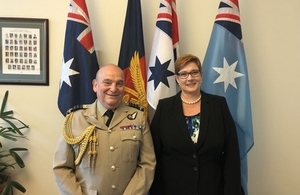The government will support even more disadvantaged children to receive free school meals and free early education for two-year-olds, Education Minister Nadhim Zahawi has announced today (Wednesday 7 February).
This announcement follows two public consultations – which sought the view of parents, schools, local authorities, early years providers and charities – on eligibility for free school meals, the early years pupil premium and the free early years entitlement for disadvantaged two-year-olds, in light of the national rollout of Universal Credit.
These plans follow the introduction of a similar threshold under Universal Credit for free school meals in Scotland.
The government proposals will now become law, meaning all children currently receiving this additional support will be protected, and these entitlements will be more targeted in future, to ensure they reach those most in need.
This is all part of the drive to ensure every child has the opportunity to make the most of their lives, no matter where they live or their background. Last year, around 1.1 million of the most disadvantaged children were eligible for and claiming a free meal. Overall, it is estimated that by 2022 around 50,000 more children will benefit from a free school meal compared to the previous benefits system. In addition, it is estimated that by 2023 around 7,000 more children will benefit from the two-year-old entitlement.
Education Minister Nadhim Zahawi said:
Academic standards are rising, with 1.9 million more children now in good or outstanding schools than in 2010 and nine out of ten schools given this rating at their latest inspection.
It is right that we must continue to offer the most disadvantaged young people additional help and I am pleased that, following public consultations, we can extend free school meals and the free early education entitlement for disadvantaged two-year-olds.
Tens of thousands more children will be entitled to free school meals by 2022 compared to the previous benefits system.
I’d like to thank everyone who responded to these consultations; their views will help to ensure every child can access a world-class education and the support reaches those that need it most.
The proposals that will be taken forward include:
- introducing a net earnings threshold of £7,400 per annum for free school meals eligibility under Universal Credit, to take effect from 1 April 2018. A typical family earning around £7,400 per annum would, depending on their exact circumstances, have a total household income of between £18,000 and £24,000 once benefits are taken into account;
- mirroring this eligibility criteria for the early years pupil premium, which gives additional funding to early years settings to boost the attainment of pupils from low income families; and
- introducing a net earnings threshold of £15,400 per annum under Universal Credit for eligibility for the 15-hour free early education entitlement for disadvantaged two-year-olds, to take effect from 1 April 2018.
Any household earning below these thresholds and claiming Universal Credit will be eligible to claim these benefits for their children.
The policy will protect every child in receipt of free school meals at the point at which the threshold is introduced, and every child who gains eligibility before the end of the rollout of Universal Credit, until Universal Credit is fully rolled out. Following this, protected children still in school will continue to receive free school meals until the end of their phase of education (e.g. primary or secondary school). No child who has started their two-year-old early education place will lose it as a result of this new proposal.
The government will work with schools and local authorities to help ensure families who are entitled to these benefits feel confident in how to claim them.
 Chief of Defence Staff Sir Stuart Peach and Australian Minister for Defence Marise Payne. Copyright @MarisePayne.
Chief of Defence Staff Sir Stuart Peach and Australian Minister for Defence Marise Payne. Copyright @MarisePayne.